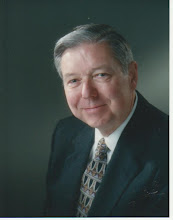Becoming a Professional
1. Obtain a degree in the field. Several colleges and universities now offer a degree in parks, recreation, tourism, or leisure studies on the undergraduate level. Some also offer graduate degrees.
2. Talk with current professionals. Learn about opportunities in their organization, and other openings.
3. Contact the state association of park and recreation professionals. Look at their job bulletin listing openings in that state, or neighboring states.
4. Get a volunteer or part-time job with a local recreation agency. See if you enjoy being in this type of people business, and display your interest to your supervisors and managers.
5. Apply for every job that you are conceivably qualified for, and ask for an interview. Ask questions about qualifications and expectations of each position.
6. Attend state, regional, or national recreation conferences. They almost always have a job mart! And, it is a great place to make contacts.
7. Design a resume with a particular market in mind. Be ready to rewrite the document for a different audience or type of agency.
8. Establish your own network of potential employers then mail your resume to everyone who might be interested in you. Follow up with a phone call, and continue to stay in touch.
9. Be ready to talk about your education and experience and how it fits in with the needs of a particular agency or organization. Think creatively, and show how your credentials will coincide with the agency's needs.
Recreation and leisure services is a dynamic, exciting, and growing field. It provides satisfying and rewarding careers for trained and qualified individuals. Creative and competent administrators, managers, and leaders at every level are needed. The field of recreation and leisure services has matured way past the old idea of yesteryear that "anyone can do it."
The need for recreation and leisure services in many settings continues to increase in our nation. There is also a need for highly capable and qualified professionals to serve in this field. Take a good look at yourself. You may discover that a career in the recreation and leisure services profession is the perfect match for your own personal goals, objectives, and interests for the future.

